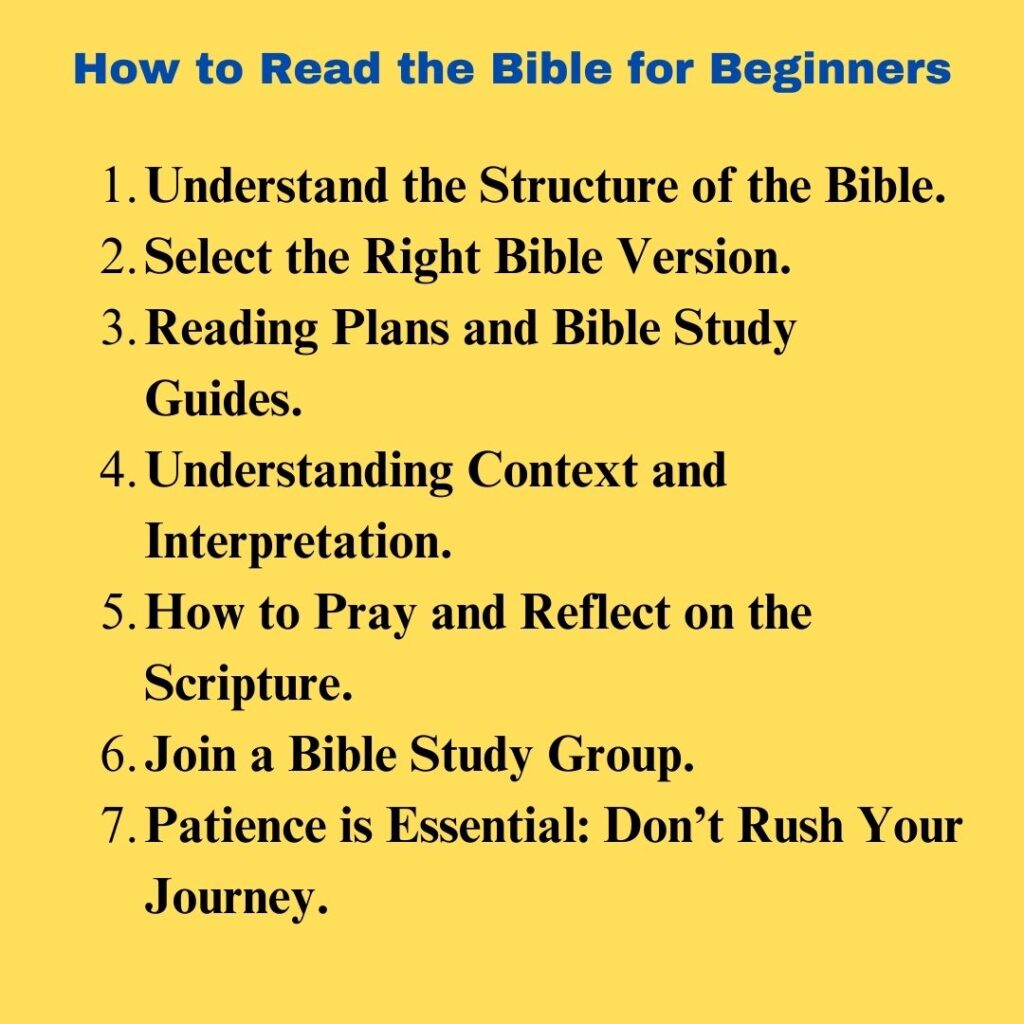Reading the Bible can feel like a daunting task for beginners, particularly given its length, complexity, and historical context. However, with the right strategies and a systematic approach, anyone can start to understand and appreciate this significant text. This beginner-friendly guide will walk you through how to start reading the Bible, offering some practical steps and tips to facilitate your journey.
Understand the Structure of the Bible
Before diving in, it’s important to understand how the Bible is organized. The Bible is a collection of 66 books, divided into the Old Testament (39 books) and the New Testament (27 books). These books encompass various genres such as history, poetry, prophecy, law, and epistles (letters).
Select the Right Bible Version
The Bible has been translated into numerous versions, and some are easier to understand for modern readers than others. For beginners, consider a version like the New International Version (NIV) or the English Standard Version (ESV), both of which balance accuracy with readability.
Reading Plans and Bible Study Guides
A reading plan or a Bible study guide can provide a structured approach for beginners. Some plans take you through the Bible in a year, while others focus on specific themes or books. Online resources, like the YouVersion Bible App, offer an array of free reading plans.
Understanding Context and Interpretation
Understanding the historical, cultural, and literary context of the Bible is crucial for interpretation. Use a good study Bible or Bible commentary to help provide this context. Remember, the Bible was written over a span of about 1500 years, across different cultures and languages – context is key.
How to Pray and Reflect on the Scripture
Prayer and reflection are key components of Bible reading. Before you start reading, take a moment to pray for understanding and insight. After reading, spend some time reflecting on what you’ve read and how it applies to your life.
Join a Bible Study Group
Participating in a Bible study group can provide community support, offer diverse perspectives, and help answer any questions you might have. Look for local church groups, or consider online forums and virtual Bible study groups.
Practice Regular and Consistent Reading
Like any new habit, consistency is key when starting to read the Bible. Start with shorter daily readings and gradually increase as you become more comfortable. Even just a few minutes each day can be a great start.
Patience is Essential: Don’t Rush Your Journey
Finally, remember that understanding the Bible is a journey, not a race. It’s a text rich in wisdom and insight, and it deserves a thoughtful and patient approach. Don’t be discouraged if you don’t understand everything immediately; keep reading, asking questions, and seeking understanding.
By following these steps, you can start your journey of Bible reading with a clearer direction and a solid foundation. Remember, the purpose of reading the Bible isn’t just about knowledge acquisition, but about growing in your understanding and relationship with God. Be patient with yourself, and enjoy the journey.

Author

Alona Smith is a devoted follower of Jesus Christ who believes that life’s true purpose is found in knowing Him and making Him known. She is passionate about sharing God’s Word with clarity and compassion, helping others see the beauty of the gospel of grace revealed through the Apostle Paul.
Grounded in Scripture and led by the Spirit, Alona seeks to live out her faith in practical ways—showing kindness, extending forgiveness, and walking in love. Whether serving in her local church, encouraging a friend in need, or simply living as a light in her community, she strives to reflect Christ in both word and deed.




